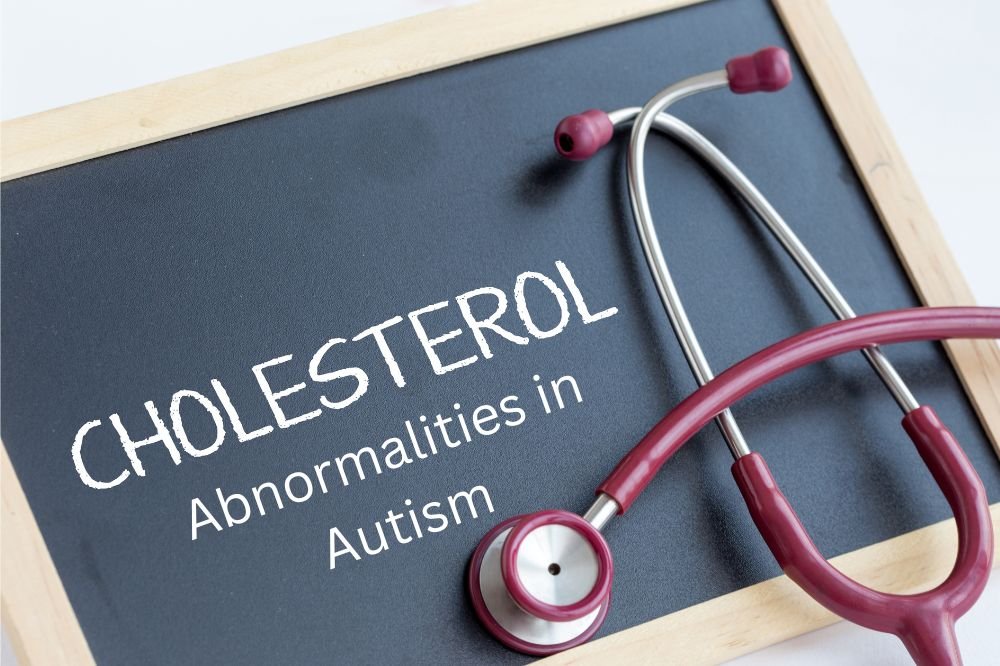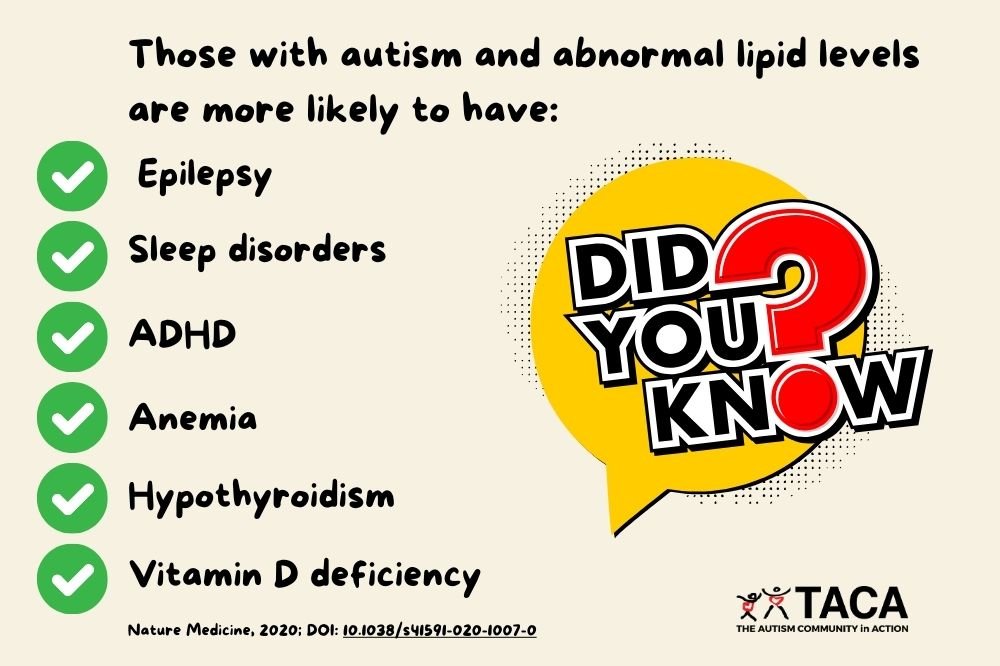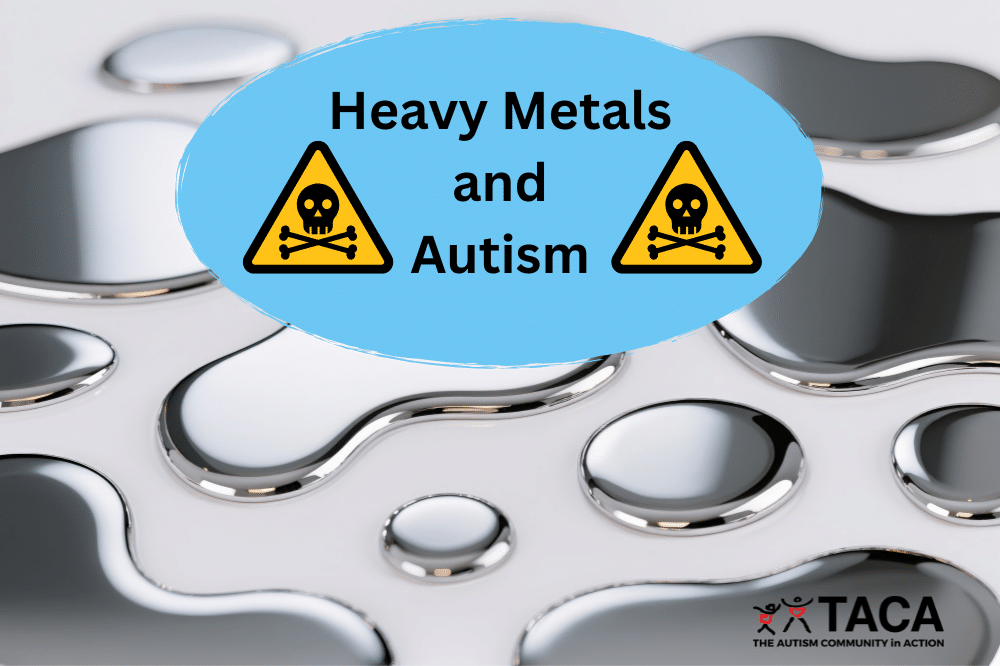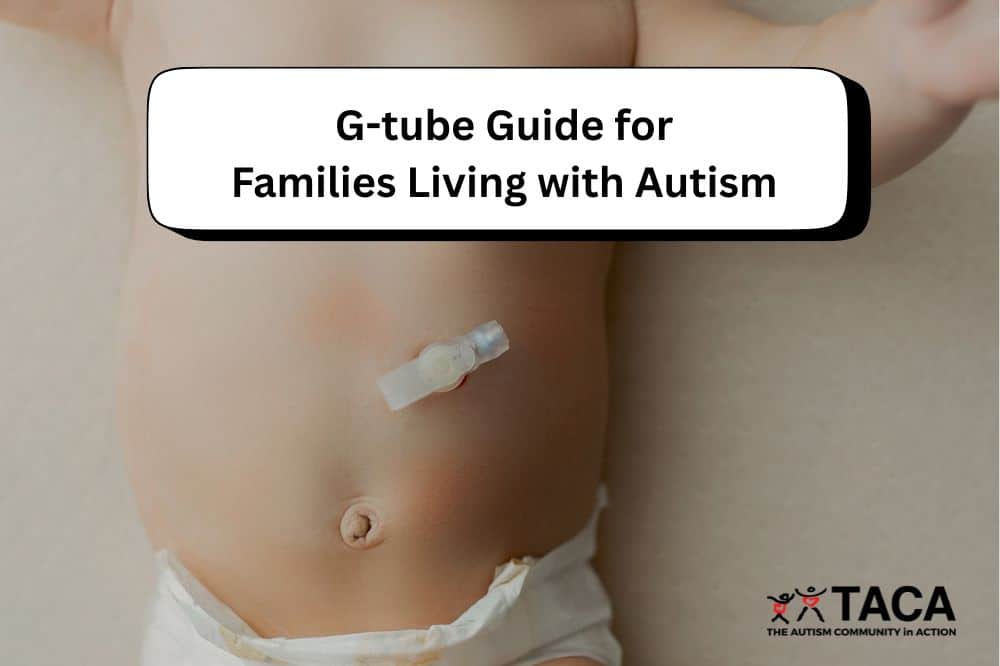Cholesterol Abnormalities in Autism

All contents of this resource were created for informational purposes only and are not intended to be a substitute for professional advice, diagnosis, or treatment. Always seek the advice of your physician, therapist, or other qualified health providers with any questions or concerns you may have.
The link between autism and cholesterol abnormalities underscores the importance of testing for and treating cholesterol problems. After all, cholesterol is needed to make sex hormones; cortisol which helps us deal with stress; vitamin D which helps with immunity; and bile acids to help digestion. These are critical issues for everyone.
This article includes:
- What is cholesterol?
- Where does cholesterol come from?
- Why is cholesterol important?
- The link between autism and cholesterol
- Lab Testing
- Low Cholesterol
- High Cholesterol
What is cholesterol?
Cholesterol is a waxy, fat-like substance found in the body’s cells. It contributes to the structure of cell membranes, keeping them intact, and is needed for many important bodily functions.
Where does cholesterol come from?
The cholesterol in your blood comes from two sources:
- The foods you eat (about 20%)
- Your liver (about 80%)
HOWEVER;
- The brain makes its own cholesterol because cholesterol cannot cross the blood-brain barrier.
- Therefore, once the blood-brain barrier closes in infancy, a person can have too much cholesterol in the body from food eaten, but not enough in the brain.
- This is called cholesterol dyshomeostasis.
The key is having the right amount of cholesterol in the right places, otherwise known as cholesterol homeostasis.
Why is cholesterol important?
The human brain is nearly 60 percent fat which is not surprising since myelin is a fatty layer that covers the nerves in the brain. In fact, the brain is the body’s organ with the most cholesterol. If the brain’s cholesterol is too low, it can’t function properly. Mood regulation, learning, and memory are affected.
Additionally, our body uses cholesterol to:
- Develop the nervous system in babies
- Build new tissues
- Repair cells in damaged tissue
- Produce hormones
- Sex hormones
- Steroid hormones
- Make Vitamin D
- Make fat-dissolving bile acids

The link between Autism and Cholesterol
In 2020, Harvard released their research findings that both children with autism and their parents had pronounced alterations in their lipid bloodwork.
- Over 80,700 blood tests of people with autism were analyzed.
- 6.5% of those with autism had abnormal lipid levels.
- Individuals with autism were 2x as likely to have abnormal lipid test results as those without autism.
- Mothers with cholesterol abnormalities were 16% more likely to have a child with autism than mothers without lipid abnormalities.
- The risk of having a child with autism among fathers with lipid abnormalities was 13% greater than in males with normal lipid levels.
- In families with more than one child, children diagnosed with autism were 76% more likely to have abnormal lipid profiles than their siblings.
- Those with autism and abnormal lipid levels were also more likely to have:
- Epilepsy
- Sleep disorders
- ADHD
- Anemia
- Hypothyroidism
- Vitamin D deficiency
Some people think that the lower the cholesterol level, the better. However, it is not that simple.
In fact, that notion could be incorrect in light of new research.
Lab testing
It is important to do lab testing to know your child’s cholesterol levels. This is a FASTING blood test.
HDL – Think “H” for healthy
- High-density lipoprotein (HDL) cholesterol is considered the “good” cholesterol.
- It can help remove other forms of bad cholesterol from your arteries.
- However, new research now shows that either too much, or too little HDL, are both linked to vascular disease and dementia.
LDL – Think “L” for lousy
- LDL, or low-density lipoprotein, is the “bad” cholesterol.
- Too much LDL can lead to a buildup of cholesterol in your arteries.
- But you don’t want it to get too low.
- One long-term study found a link between very low LDL cholesterol and a higher risk of stroke.
Total Cholesterol
- This is the total amount of cholesterol circulating in the blood.
Triglycerides
- Triglycerides are not cholesterol.
- Triglycerides are fats (lipids) in your blood.
- They are the most common type of fat in your body.
- Triglycerides come from foods, especially butter, oils, and other fats you eat.
- Calories that are eaten but not needed for energy are converted to triglycerides.
- Then they are stored in fat cells for when your body needs the energy.
- High triglycerides are known to be a risk for stroke or heart disease.
- This 2024 research study demonstrated that kids diagnosed with autism had much higher levels of triglycerides than their neurotypical peers.
Low Cholesterol
Total cholesterol of 145 or lower is problematic and can result in depression, moodiness, confusion, anxiety, poor sleep, aggression, and more.
This 2019 research shows that low total cholesterol is 4x as common in kids with autism, than in their neurotypical counterparts. Additionally, low total cholesterol in ASD was associated with higher rates of ASD-associated intellectual disability and anxiety/depression.
This 2005 study showed that non-African-American children with total cholesterol less than 145 mg/dl were almost 3x more likely to have been suspended or expelled from schools than their peers with total cholesterol at or above 145 mg/dl. Low cholesterol may predispose a child to aggression.
Low Cholesterol Treatment
Even though cholesterol cannot cross the blood-brain barrier, increasing cholesterol intake may still help by leading to increased levels of vitamin D, production of sex hormones, the production of steroid hormones, and more. This can lead to the overall well-being of the person.
- Eat higher-cholesterol foods
- Eggs
- Shellfish
- Cook in animal fat – lard, duck fat
- Coconut oil
- Sonic
- This is a prescription cholesterol supplement made from raw sheep wool
- Safe for kids with allergy to eggs.
- Digestive Enzymes
- Omega 3 (Fish Oil)
- Omega 3 is not cholesterol.
- Instead, Omega 3s are essential polyunsaturated fat that must be consumed because the body does not make its own.
- Research shows Omega 3s can decrease triglycerides (which is good), and can increase both HDL and LDL.
- An OmegaCheck test measures the levels of omega-3 and omega-6 fatty acids in the blood.
- It is run through Quest Diagnostics
High Cholesterol
Quantifying cholesterol as “high” is difficult. Elevated levels of LDL are problematic. However, elevated HDL can be beneficial. It is more about how much is HDL and how much is LDL.
High Cholesterol Treatment
- Reduce sugar and simple carbohydrate consumption
- CoQ10 supplementation
- 2022 study shows CoQ10 lowers Total Cholesterol, LDL, and Triglycerides, and increases HDL.
- Lower inflammation
- Test for and treat infections
- Psyllium supplementation
- Increases the excretion of bile acids which contain cholesterol
- Vitamin B5
- Vitamin B5 is used to make Coenzyme A (CoA) which helps enzymes build and break down fatty acids.
- Bergamot
- Run an OmegaCheck
- An OmegaCheck test measures the levels of omega-3 and omega-6 fatty acids in the blood.
- It is run through Quest Diagnostics
- This tells you if you need to supplement with Omega 3s
- Check for Lupus or other autoimmune diseases
- These can result in high cholesterol
The Problem with Statins
Statins are medications used to treat high cholesterol and prevent cardiovascular disease and stroke.
However, statins can easily cross the blood-brain barrier. Remember that cholesterol ingested and made by the liver CANNOT cross the blood-brain barrier to enter the brain. This means that statins can lower the much-needed cholesterol in the brain which protects against dementia and brain degenerative diseases.
Research: Fat-soluble statins, such as atorvastatin and simvastatin, can easily cross the BBB and enter the brain. Additionally, two studies have found evidence of pravastatin in the brain.
This is an area of much controversy due to conflicting study results and research interpretation. Talk to your functional medicine doctor about the best treatment for elevated cholesterol.
Conclusion
Research shows that abnormal lipid levels are widespread in autism. Regulating the body’s cholesterol is important because it is needed to make sex hormones, cortisol which helps us deal with stress, vitamin D which helps with immunity, and more.




